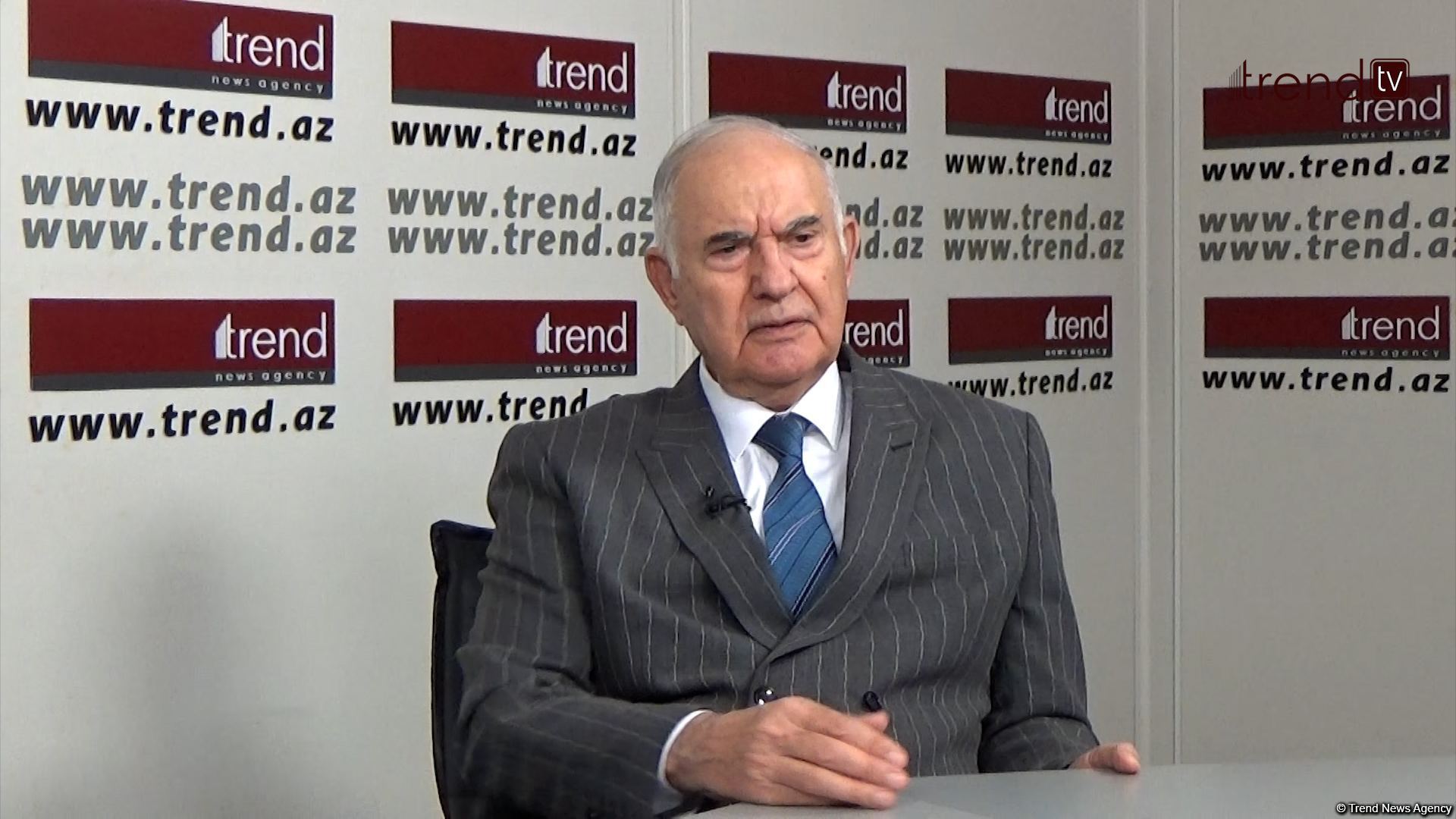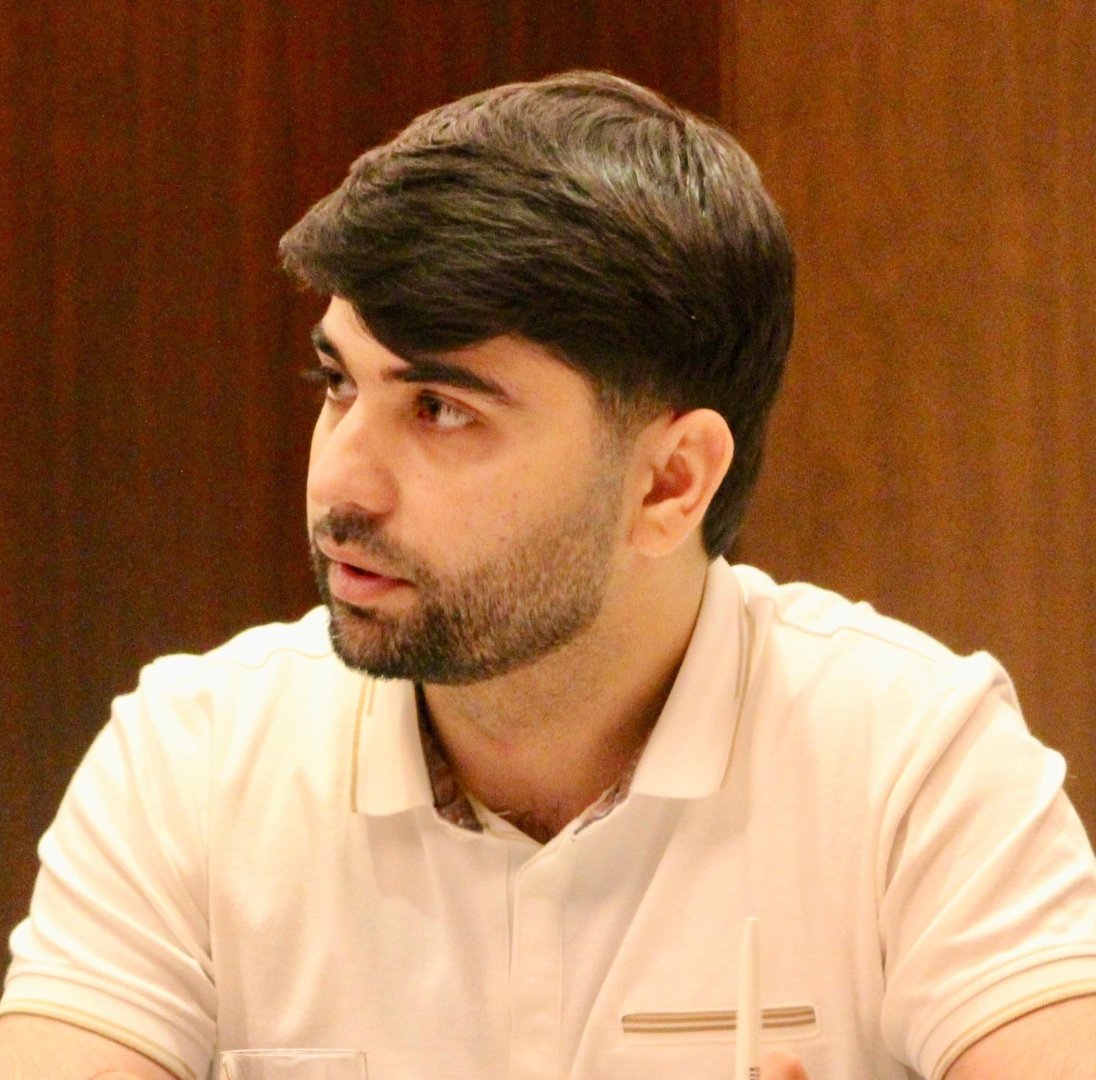BAKU, Azerbaijan, April 5. Azerbaijan has become a key player not only in regional but also in European energy security in recent years, the political analyst Azer Garayev said in an interview with Trend.
"Rich in oil and gas reserves, Azerbaijan is also rapidly advancing in alternative and renewable energy sectors, playing a crucial role in reshaping the energy geography. As a reliable partner for the European Union (EU), Azerbaijan today stands as one of the leading partners in energy diversification and sustainable energy supply for the continent.
Azerbaijan’s main pillar in energy relations with Europe is the Southern Gas Corridor (SGC). This massive project is of significant importance for energy diversification, as it delivers Caspian Sea gas through Georgia, Türkiye, and the Balkans to Europe. Over three thousand kilometers long, this corridor carries 10 billion cubic meters of gas annually to European markets via the Trans-Anatolian (TANAP) and Trans-Adriatic (TAP) pipelines. In the future, the SGC could transport up to 20 billion cubic meters of Azerbaijani gas to Europe. Discussions and European interest in this matter have been repeatedly expressed,” he said.
Garayev noted that a memorandum was signed between Azerbaijan and the EU in 2022 to increase gas exports to 20 billion cubic meters by 2027.
“As President Ilham Aliyev mentioned during the 11th meeting of the Southern Gas Corridor Consultative Council and the 3rd Green Energy Consultative Council, the geography of Azerbaijan’s gas supply is expanding: ‘Since our last meeting here in Baku, at the 10th Advisory Council, five more countries have become recipients of our natural gas. Today, Azerbaijan supplies natural gas to 12 countries—10 of them are European, and 8 of those are members of the European Union. The geography of our gas supply in Europe will definitely grow, because today we are already involved in the creation of gas distribution networks in some European countries.
Some of them do not have one, some of them need to expand it, and Azerbaijan, as an investor, is planning to do that. So, the geography of our gas supplies will definitely grow through different ways, including interconnections. Of course, we need to think about joint efforts in the expansion of the existing gas pipeline system."
The president also highlighted the importance of joint efforts in expanding the existing gas pipeline system: 'The Southern Gas Corridor is a tremendous success story for all of us. The 3,500-kilometer integrated pipeline system today is the main artery for energy security for many countries. And now it is working at full capacity. Whether it’s the South Caucasus Pipeline, TANAP, or TAP—three integral parts of the Southern Gas Corridor — all are fully packed. So we need to expand. And for that, we will need, of course, financing. And we come to a very important point, which we have raised on several occasions — that international financial institutions, those who decided to stop financing fossil fuel projects, will probably reconsider their policy, especially taking into account the huge geopolitical changes that we all witness. Because without that, any further investments in transportation infrastructure and even in upstream will be very problematic'."
Garayev noted that Europe's energy policy has undergone radical changes since the Russia-Ukraine war, making Azerbaijan a priority partner for European countries seeking alternatives to Russian gas.
"Azerbaijan has emerged as a top priority partner for European nations seeking alternatives to Russian gas. European Commission President Ursula von der Leyen highlighted this shift, recognizing Azerbaijan as a 'reliable energy supplier' for Europe and underscoring its "strategic importance on Europe's energy map." Azerbaijani gas is set to be delivered to countries like Italy, Greece, Bulgaria, Albania, and several other Balkan states in the near future. Additionally, European countries are eager to expand the volume and routes of Azerbaijan’s energy resources and collaborate on joint projects with regional nations. This growing supply of energy and the broadening export network will further solidify Azerbaijan's pivotal role in strengthening Europe’s energy security," he noted.
Regarding green energy, Garayev emphasized that in addition to traditional energy resources, green energy has become a priority on Azerbaijan’s energy agenda.
“Azerbaijan is actively advancing both traditional and alternative energy sources, making significant investments in the development of green energy. By increasing electricity production from renewable sources, Azerbaijan aims to redirect surplus gas volumes to European markets.
Additionally, the Black Sea Energy project is underway to export green energy from Azerbaijan to Europe. Signed on December 17, 2022, this agreement establishes an energy bridge between Azerbaijan, Georgia, Romania, and Hungary, facilitating the construction of a 1,195-kilometer, 1,000-megawatt submarine power cable. The cable will transport "green" electricity produced in Azerbaijan via Georgia and the Black Sea to Romania, Hungary, and ultimately, the rest of Europe. This project will enable the supply of up to four gigawatts of renewable energy.
As President Ilham Aliyev pointed out, contracts signed with investors for solar and wind power plants will yield 6 gigawatts of renewable energy by 2030. 'As I said, that will save a lot of natural gas, which we currently use to produce electricity domestically, and all of that will be available for export.' European interest in Azerbaijani energy resources continues to grow, and Azerbaijan has already become an indispensable player in Europe's energy landscape,” he added.
In his assessment, the territories liberated by Azerbaijan are abundant in renewable energy assets.
The political scientist emphasized that Azerbaijan’s role in Europe’s energy security is not only built on its natural resources but also strengthened by a well-thought-out energy policy, stability, and an openness to international cooperation.
"The territories of East Zangezur and Karabakh, liberated from Armenian occupation, hold vast hydroelectric potential. As President Ilham Aliyev highlighted, we have already established 270 megawatts of hydroelectric power plants: 'More than 30 small hydropower stations have already been inaugurated, and in the next maximum five years, this number will grow up to 500 megawatts, with an additional 30 small hydropower stations. So, that will eventually, by 2030, create an energy potential of 6.5 gigawatts. And just for your information, today Azerbaijan’s installed capacity is slightly more than eight. So, we will almost double our potential to produce energy from renewables within the next five years.
Alongside oil and gas, progress in green energy is positioning Azerbaijan as a key center on the future energy map. For Europe, Azerbaijan is not just an energy supplier but a strategic partner and a guarantor of regional stability," Garayev concluded.
Stay up-to-date with more news on Trend News Agency's WhatsApp channel







